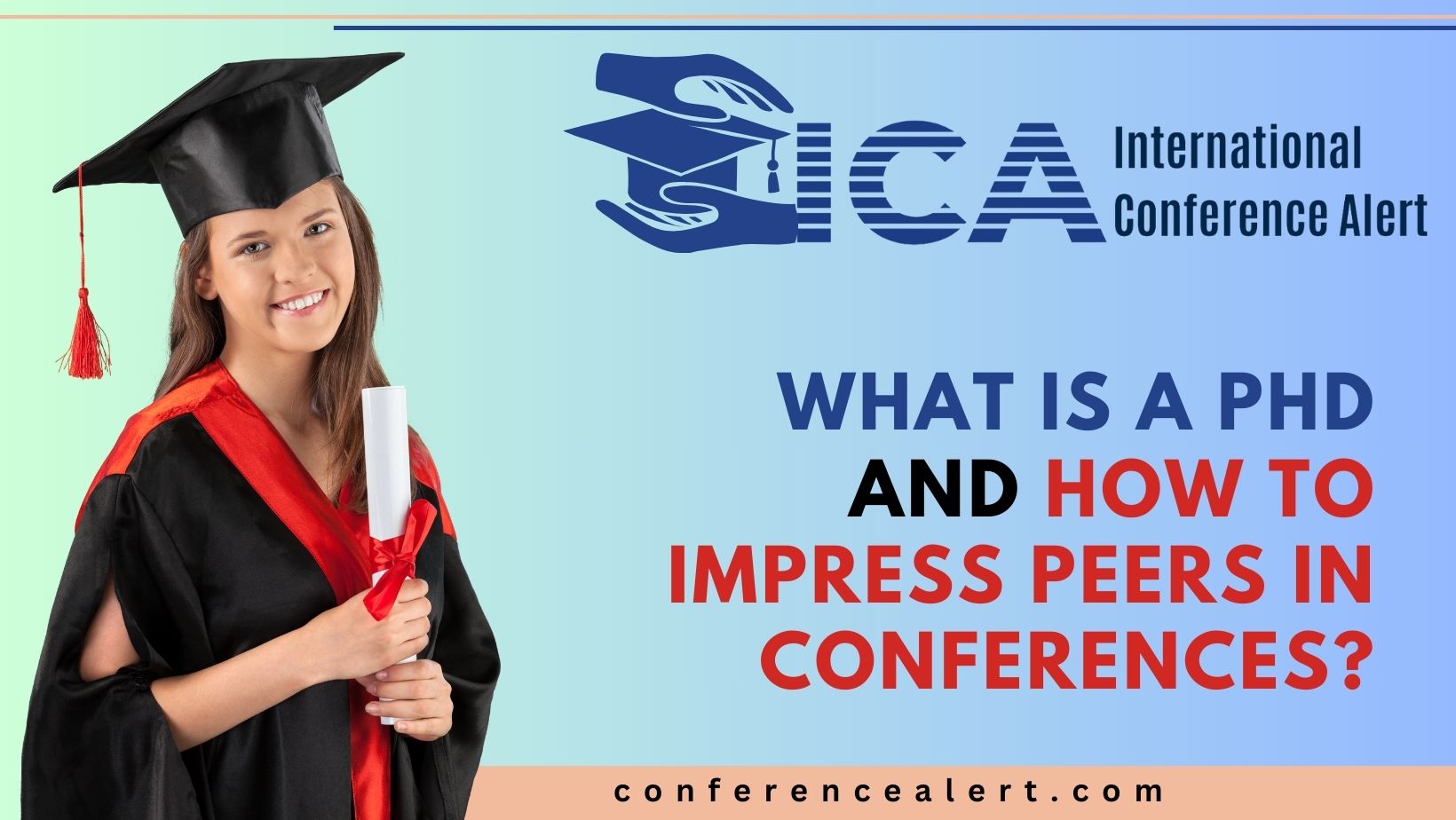
PhD is a doctoral degree that is awarded to candidates who have completed an original and significant research project in a specific field of study. A PhD usually takes 3 to 5 years to complete and involves conducting a literature review, designing and conducting experiments or surveys, analyzing data, writing a dissertation, and defending it in front of a committee of experts. A Ph.D. is the highest academic qualification that one can obtain and is a prerequisite for many academic and research positions.
One of the main goals of doing a Ph.D. is to contribute to the advancement of knowledge in your field and to share your findings with the scientific community. One of the best ways to do this is to present work at conferences, where you can meet other researchers, get feedback, and network. Conferences are also a great opportunity to impress your peers and showcase your skills and achievements.
Presenting work at conferences can also be challenging and stressful. Need to prepare a clear and engaging presentation, deliver it confidently, and answer questions from the audience. Also, need to deal with the competition and criticism from other researchers who may have different opinions or perspectives on your topic. How can you impress your peers in conferences and make a positive impression?
Choose the right conference for work. There are many conferences in different fields and topics, so you need to find the one that is most relevant and suitable for your work. Search for conferences online, ask your supervisor or colleagues for recommendations, or check the websites of professional associations or journals in your field. Also consider the quality, reputation, location, cost, and audience of the conference before applying.
Submit an abstract that summarizes your work. An abstract is a short summary of your research that describes the main problem, objectives, methods, results, and conclusions of your work. It is usually around 250 words long and should include the main keywords and a catchy title.
An abstract is what the conference organizers use to evaluate your work and decide whether to accept it or not. Therefore, you need to write an abstract that is clear, concise, coherent, and compelling. Follow the guidelines and format of the conference when writing your abstract.
Prepare a presentation that highlights your main points. A presentation is a visual and oral communication of your research that you deliver in front of an audience. It is usually around 15 to 20 minutes long and should include slides that support your speech. A presentation should not be a copy of your dissertation or paper, but rather a summary of your main points and contributions.
Focus on the most important and interesting aspects of your work and avoid too much detail or technical jargon. Use graphs, charts, images, or animations to illustrate your data or concepts. A presentation should have a clear structure that consists of an introduction, a body, and a conclusion.
Practice your presentation several times before the conference. Practicing your presentation can help you improve your content, delivery, and timing. You can practice by yourself or with someone else who can give you feedback. Practice with the equipment and software that you will use at the conference. Rehearse your presentation until you feel confident and comfortable with it.
Deliver your presentation with confidence and enthusiasm. On the day of the conference, you should arrive early, check the venue and equipment, and get ready for your presentation.
Dress professionally, speak clearly and loudly, make eye contact with the audience, use gestures and expressions to emphasize your points, and show enthusiasm for your topic. Stick to the time limit and avoid reading from notes or slides.
Answer questions from the audience politely and respectfully. After your presentation, you will usually have some time for questions from the audience. This is an opportunity for you to clarify any doubts or misunderstandings about your work, as well as to demonstrate your knowledge and expertise.
Listen carefully to the questions, thank the questioner, repeat or rephrase the question if necessary, and answer it briefly and clearly.
If you do not know the answer or need more time to think about it, you can admit it honestly or ask for more information or clarification. Be respectful of different opinions or perspectives and avoid arguments or confrontations.
Impress your peers in conferences and make a lasting impression on them. Presenting your work at conferences can be a rewarding experience that can enhance your skills, knowledge, reputation, and career prospects.
Leave a Reply